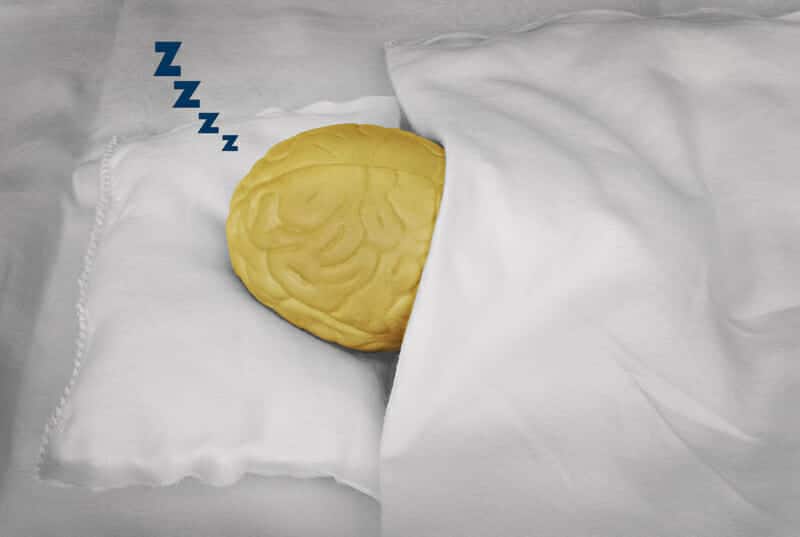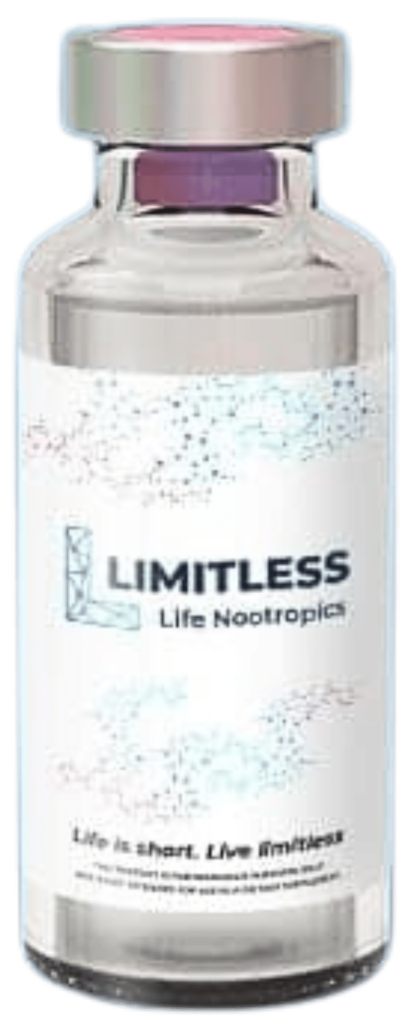A good night’s sleep of 7-8 hours uninterrupted is crucial for optimal testosterone levels and robust mitochondrial health.
But even when we do everything “right”… there’s always the barrier of magically falling asleep after closing our eyes.
Sedating ourselves into zombies isn’t the solution, yet we need a solution for nighttime restlessness.
So instead of suggesting melatonin or Ambien as a crutch for deep restorative sleep, why not try DSIP — the delta sleep-inducing peptide?
Because let’s face it: You don’t need to be an insomniac to want better sleep at night.
Keep reading to learn how DSIP can restore your circadian rhythm, reset your sleep patterns to normal, and much more.
Table of Contents
ToggleWhat Is DSIP?
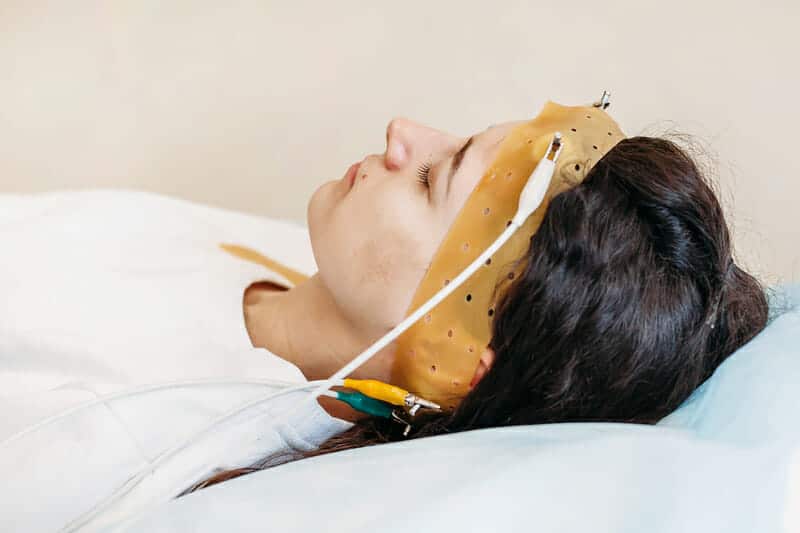
DSIP (delta sleep-inducing peptide) is a naturally-occurring nonapeptide (9 amino acids long) that can be found in numerous bodily tissues in both free or bound form.
Its chemical structure (N-Trp-Ala-Gly-Gly-Asp-Ala-Ser-Gly-Glu-C) can be found below:
(Source)
Although the literature claims it was first isolated from the cerebral blood of rabbits in 1977, some state its mere existence was discovered in the 1960s by scientist Marcel Monnier and his colleagues in Switzerland due to its ability to induce delta-wave sleep (more on that later).
What’s interesting to note is how the majority of the research available on DSIP was conducted in the 1980s… and then people suddenly lost interest.
Nobody knows for sure why this happened, but conflicting reasons exist:
“‘The reason for this’ says Professor Alexander Borbély of the University of Zürich, ‘is that DSIP turned out to be a flop as a sleep substance and any interest was lost. The results were negative or ambiguous. It may be that the peptide has other biological actions but not a sleep-inducing one.’
Professor Guido Schoenenberger of the University of Basel – one of the key scientists to have worked on DSIP in the 1980s – does not agree. According to him, tests were conclusive. It was the lack of money that killed research on DSIP.”
What makes DSIP even more fascinating as a possible sleep-inducing therapeutic is how rapidly it acts:
“DSIP promotes sleep by targeting various areas of the brain. The peptide is easily absorbed from the gut and is not denatured by enzymes. It crosses the blood-brain barrier easily. DSIP influences the circadian rhythm in humans. Low concentrations of the peptide are observed in patients with schizophrenia and depression.”
So what’s really going on? How does DSIP help us sleep better at night?
What Does DSIP Peptide Do?

Despite being well-studied for the past 4 decades, its precise mechanism of action has not been fully figured out.
The primary reason for this is that we have yet to isolate the DSIP gene and the peptide’s related receptor (i.e. it may only “exist” under artificial conditions).
Dr. William Seeds explains the connection between DSIP and your sleep cycle in his book Peptide Protocols Volume 1, so I’ll paraphrase it here:
“You have five sleep stages in total: Stages 1-4 and REM (rapid eye movement sleep). The first cycle through all five stages takes 90 minutes, and then 100-120 minutes per consequent cycle.
You want to focus on Stages 3-4, which are known as “deep sleep” or “delta sleep”, along with REM sleep. Delta waves are predominant in infants and unfortunately decrease across the lifespan of an average human being.
Paraxodically, getting good Stage 4 sleep and REM sleep can be predictive of cellular recovery and overall immunity. Yet there are many lifestyle diseases (diabetes, Alzheimer’s, sleep deprivation, alcohol consumption, depression, OCD, ADHD, etc.) that disrupt slow-save sleep.
In addition to addressing sleep disturbance, DSIP assist in cellular repair by improving REM, resetting the circadian clock genes, and suppressing paradoxical sleep.”
There are many other mechanisms we don’t know about, but some of the most suggested ones are serotonin and melatonin release,
DSIP Peptide Benefits
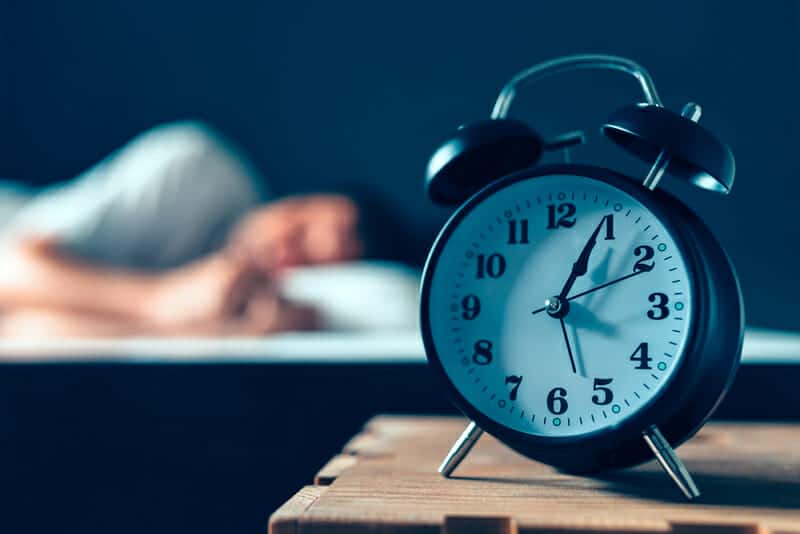
What’s interesting about DSIP are the +500 studies (and counting) listed on PubMed since the year 1975.
Yet despite its primary role as a sleep inducer, there is emerging evidence to suggest DSIP has many more health benefits in the human body.
Deeper Sleep
While I usually start off with the clinical studies, I want to do something different and share the testimonials of the few brave souls who experiment with DSIP:
“depth and length of sleep increases” (Source)
“it’s given a real insomniac solid natural sleep without any residual grogginess into the next day… Last 4 nights i have slept between 6.25 and 7.75 hours each night practically without interruption” (Source)
“This was the best night sleep so far. Went down from 500mcg to 250mcg last night and feel much better this morning. Almost a full 8hrs of sleep uninterrupted and feel good. No groggy feeling like yesterday that lasted almost 4 hrs after getting up. Fell asleep much faster but also went to bed right after instead of ‘waiting to feel anything’ like previous nights” (Source)
“The Sleep is deeper or I have more deeper period.. Dreams are a bit more weird or make no sense… I feel like the first phase of sleep is skipped and you jump direct to deep; which is kinda scary” (Source)
“much heavier sleep… dreaming and dream recall (unusual for me)… melatonin-like effects seconds after administration (less energetic, more relaxed), unlike when using melatonin I was not tired when waking up… higher libido upon waking up and later during the day” (Source)
“After over a week of using it, I swear by the stuff. 100-125mcg is what i’ve been dosing it at. Half hour after injection, I get very sleepy. I’ve been waking up earlier than normal and definitely more energized.” (Source)
However, many other testimonials (here and here) make an important distinction: DSIP does not necessarily make you fall asleep faster, but rather it makes your sleep much deeper and makes it easier to enter deep sleep.
This distinction is key to helping people get a realistic expectation regarding DSIP benefits for insomnia.
And while we don’t have the Phase III clinical trials for DSIP yet, early human pilot studies from the 1980s suggest it can promote deep sleep at low doses:
“The [six normal] subjects immediately reported a feeling of sleep pressure, and sleep increased by 59% (median of total sleep time) within a 130-min interval after the treatment as compared with placebo. Delayed effects on subsequent night sleep were shorter sleep onset, reduced percentage of stage 1, and better sleep efficiency… The results suggest that DSIP in humans is also efficacious by sustaining natural sleep functions. The compound was well-tolerated and no psychologic, physiologic, or biochemical side effects were observed.” (Source)
“[in six middle-aged chronic insomniacs] longer sleep duration and a higher quality of sleep with fewer interruptions; slightly more REM-sleep, but no day-time sedation or other side effects though the sleep enhancing capacity was seen for up to 6 h of night sleep. Sleep-promoting effects occurred only in the second hour after injection, in the first hour a slight arousing effect was indicated. The study corroborates the findings of previous investigations in healthy subjects and shows that DSIP has a normalizing influence on human sleep regulation.” (Source)
“DSIP was administered under placebo-controlled, double-blind conditions for 7 successive nights. [in 14 middle-aged chronic insomniacs]… The treatment substantially improved night sleep with the first and additionally with repeated doses. These effects were maintained for the first posttreatment (placebo) night. Efficiency of night sleep and daytime rest reached the levels of normal controls. Alertness and performance at daytime increased significantly. The study demonstrates the efficacy of DSIP for the treatment of impaired sleep and daytime functions as well.” (Source)
This matches up well with what we see in rat studies and cellular studies, so the only remaining question is why we’re NOT using it!
Treatment of Withdrawal Syndromes
Addiction can be a terrible thing to go through, especially if one has to suffer through the withdrawal process needed to get clean.
Fortunately, DSIP has already been used in experiments involving human subjects as early as the 1980s for this very purpose.
The first study I could find using DSIP for treating withdrawal symptoms was published in 1983:
“DSIP (25 nmol/kg) was injected intravenously as sole treatment to 67 patients presenting withdrawal symptoms (28 from ethyl alcohol, 39 from opiates). 27% of the patients were lost or unsuitable for evaluation.
From the 49 evaluable patients, DSIP produced a beneficial effect in 48 (22 alcoholics and 26 from 27 opiate addicts), with an immediate onset of action, a good and lasting suspension of the somatic symptoms and signs. Anxiety resolved more slowly, within hours. No major side-effect occurred”
A year later, another study was able to reproduce the same outcome:
“DSIP was administered intravenously to 107 inpatients presenting with symptoms of alcohol (n = 47) or opiate (n = 60) withdrawal. The assessment of effect was based on the clinical evaluation by the physician and the nursing staff.
…In, respectively, 97 and 87% of opiate and alcohol addicts, the clinical symptoms and signs disappeared after DSIP administration or improved markedly and rapidly. Anxiety, however, was slower to decrease. On the average, the clinical symptomatology had a more prolonged course and a higher number of DSIP injections were required for opiate addicts than for alcoholics.
Tolerance to the DSIP treatment was good, aside from headaches reported by a few patients.”
With enough evidence to suggest DSIP is agonistic to the opioid receptors within our brain, larger clinical trials need to be pursued.
But case reports such as this one published in 1997 gives us great hope for DSIP’s future as a substance detoxification agent:
“Ms. A, a white, 21-year-old woman with a 3-year history of opioid dependence, was admitted for inpatient detoxification. No drugs other than opioids were detected in her urine before the study.
…Each time that Ms. A was given delta sleep-inducing peptide, she showed a rapid and marked improvement. Her Subjective Opiate Withdrawal Scale scores declined to 9 points or less. The compound was beneficial for both physical and psychic withdrawal symptoms.
The onset of action was rapid (10 minutes), and improvement lasted for 3.5 hours, after which the withdrawal symptoms would slowly recur. No other medication was administered except for a single, 25-mg oral dose of doxepin on day 3 to treat insomnia. Ms. A was successfully detoxified according to our regimen. No side effects were observed.”
Hormone Optimization and Other Benefits
As I said earlier, DSIP may be one of the multi-functional peptides with respect to its positive health benefits.
We don’t have enough data to definitively make claims, but here are some of the areas where the most promise lies:
- May indirectly increase testosterone levels through greater secretion of luteinizing hormone (LH)
- Increases growth hormone (GH) secretion, possibly adding another mechanism through which DSIP improves sleep quality
- Inhibits the release of somatostatin, which is known as a growth hormone-inhibiting hormone
- Rat studies (here and here) suggest DSIP has anti-epileptic properties (i.e. reducing/preventing the occurrence of seizures)
- One clinical pilot study in humans found DSIP reduced chronic pain associated with migraines and tinnitus
- Possibly restores mitochondrial respiratory activity
- In vitro studies (here and here) suggest DSIP could have antioxidant properties for decreasing cellular damage
DSIP Dosage for Sleep
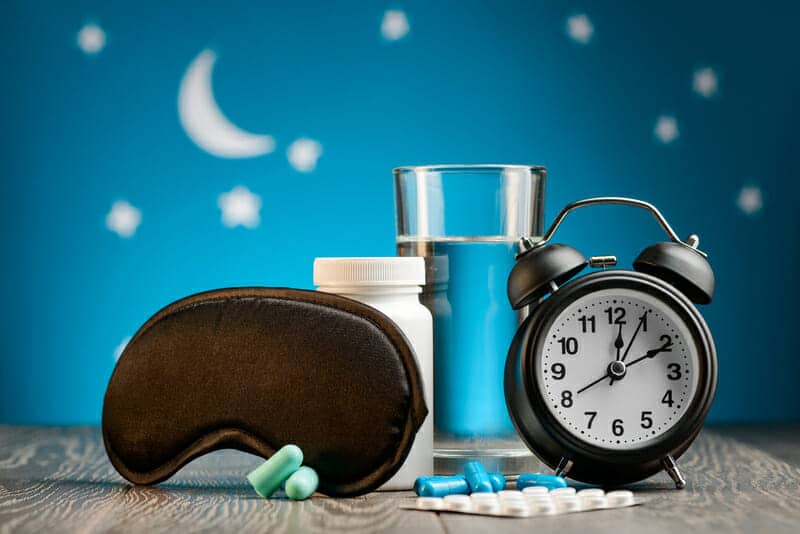
Unfortunately, there doesn’t seem to be an optimal DSIP dosage for helping people sleep better at night.
The only two authoritative sources that have a strong stance on this are as follows…
Dr. William Seeds’ “Peptide Protocols, Volume 1”: 100 mcg injected subcutaneously at night ~3 hours before bedtime (can be done daily, every 3 days, or every week)
Ben Greenfield’s “Boundless”: 150 mcg injected subcutaneously 1 hour per bed, 3 times a week to increase deep sleep levels by 30-40% (he uses it conservatively to avoid a diminishing response to successive doses that renders DSIP less effective)
While I’ve seen some people suggest the use of nasal sprays, DSIP is like many other peptides with respect to subcutaneous injection providing the best results.
And some people advocate doses as high as 250 mcg, but I personally believe this may be overkill.
How to Take DSIP
The best DSIP dosage for sleep in first-time users of the peptide would be to start at 50 mcg with a 1x/week frequency and then gradually increase the dosage/frequency over time.
As for answering the question “When should I take DSIP”, I would say its best to experiment anywhere between 1-3 hours before bedtime.
This will allow you to adjust to any DSIP benefits you will experience and see what the most optimal DSIP dose will be for you.
Additionally, you will see for yourself if Dr. Seeds’ and Ben Greenfield’s recommendations hold any water.
How Quickly Does DSIP Work?
Sadly, we do not have any meaningful data for DSIP in humans with respect to how the peptide is metabolized and eliminated.
One in vitro study suggests the half-life of DSIP is 15 minutes, while another study conducted in dogs suggested it could be 4 minutes.
Based on this sparse data, you should expect DSIP to work very rapidly.
Plan your sleep schedule accordingly and make sure the timing of your DSIP dose is aligned with your ideal bedtime.
DSIP Side Effects & Safety Profile

The available information regarding the side effects of DSIP is barely reported on… likely because very few people have used it for sleep optimization.
However, here are the most commonly reported side effects of DSIP I’ve come across:
- Possible build-up of tolerance over a short time period (i.e. you need more DSIP to get the same result)
- Dose-sensitivity: Too little produces no effect while too much may lead to excessive sleepiness
- Potential increase of body temperature (may alleviate hypothermia, but not enough info to say for sure)
- Some human studies suggest DSIP does not induce any significant improvements in sleep
- Injection-related side effects such as pain and redness at site of injection
- Headaches
- Nausea
It is also plausible that the analogs of DSIP (as evidenced here and here) are more effective than DSIP itself in altering the sleep-wake hormonal process.
Finally, according to peptide physician Dr. William Seeds, the effects of DSIP may be blocked if you are also taking Naloxone.
Outside of this intel I don’t have much more to report.
As always, you are 100% responsible for the safe and responsible use of DSIP, along with any outcomes that manifest (both good and bad).
Where to Buy DSIP
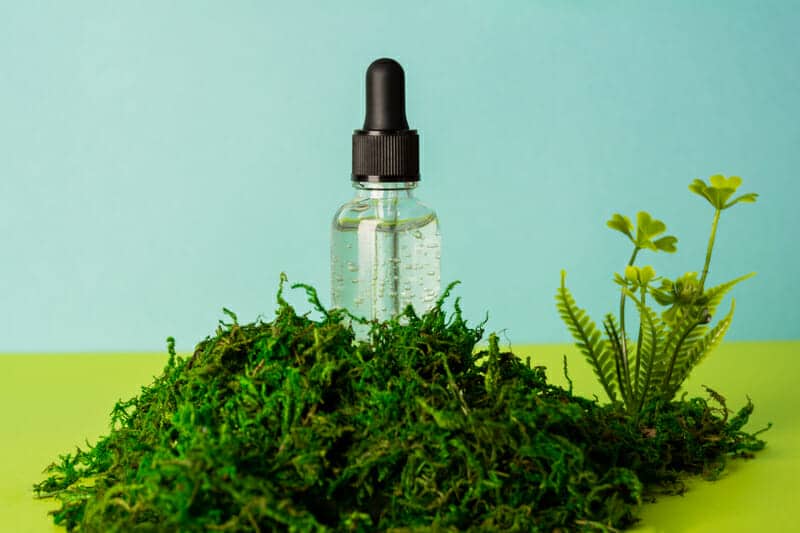
Unfortunately, I do not have any recommendations at this time for where to buy high-quality DSIP via the Internet.
And I also don’t know enough to vouch for “Deltaran”, which is a formulation consisting of DSIP compounded with the amino acid Glycine.
While it shows some promise in lowering tumor incidence in mice, that’s as far as my knowledge goes.
If you do go down that path, Dr. William Seeds recommends using Deltaran at 100 mcg injected subcutaneously:
“Adds to CNS inhibitory effect, similar to GABA, protecting the brain from excitotoxic damage. Binds toxic compounds (aldehydes and ketones) produced in large quantities in acute ischemia. Upregulates humoral and cellular immunity.”
Limitless Life Nootropics will eventually stock DSIP and I’ll update this article once they have the peptide available.
But in the meantime, I recommend experimenting with the following peptides to optimize your sleep hygiene: CJC-1295, Epitalon, and Ipamorelin.
NOTE: As of March 25 2022, Limitless Life Nootropics officially has DSIP available on backorder
Use code JAY15 to get 15% off your order!
Additional Reading Resources For DSIP

DSIP continues to be one of the many peptides which have decades of research backing it yet very few real-world results for biohackers and everyday people.
It will take us quite a while before we get to the point where DSIP is a regular staple in any peptide doctor’s toolbox.
In the meantime, I want to recommend a mix of resources for additional DSIP intel and sleep optimization strategies.
Some of my sleep-improving hacks include staying extremely lean, using C60 daily, and grounding on bare soil… for +50 more tips, check out this SelfHack article.
I also use the Eightsleep Pod Pro Mattress and nothing has been so instrumental for deeper sleep (the article also comes with a compilation of articles I’ve written on this website about sleeping better)
Dr. Elizabeth Yurth did a full podcast on using DSIP for improving sleep quality and quantity, a must-listen if you want an oversimplified explanation of what the peptide does.
As always…
Raise Your Vibration To Optimize Your Love Creation!
PS – If you want to instantly sleep like a baby every night and wake up feeling like a kid on Christmas day, every day without fail, join The Fully Optimized Health Private Membership Group.
It’s your greatest opportunity to fully optimize your health, gain total access to myself and network with high-level men and women looking to 10X their life.
You’ll also get access to my best-selling books and webinars for free, state-of-the-art testosterone optimization, cutting-edge research on peptides and supplements, and my “black book” rolodex of the world’s best hormonal health physicians.

